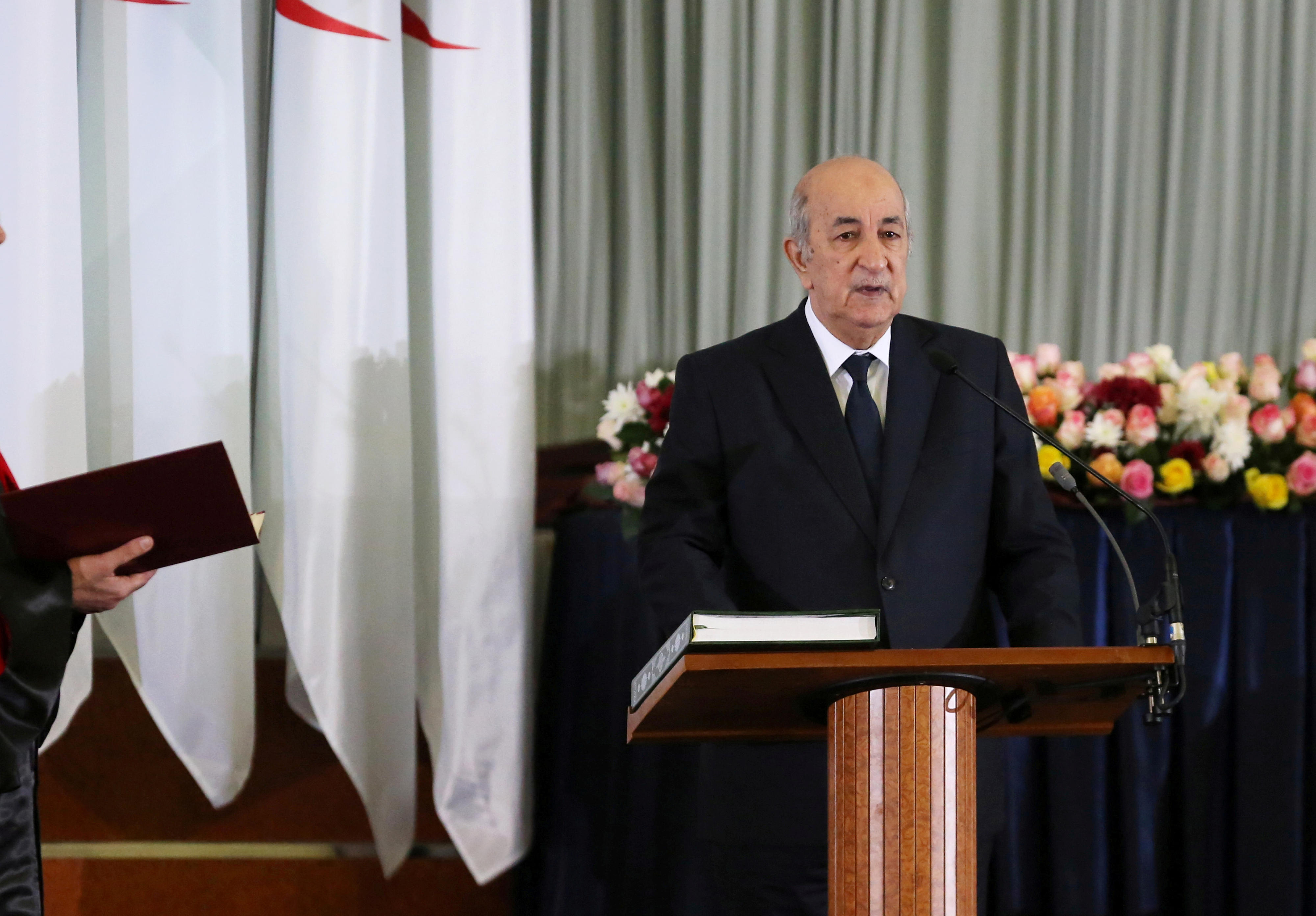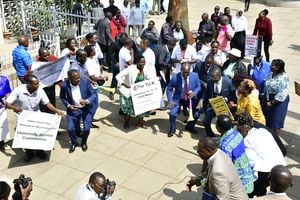Algeria elections: How to read Tebboune’s landslide victory

Algeria President Abdulmadjid Tebboune
What you need to know:
- The final results, as confirmed by the Constitutional Court, indicate that President Tebboune has won.
- In his first term in December 2019, the president won 39 per cent of vote, riding a fierce opposition.
Algeria last week, on September 7, conducted its presidential elections, becoming one of the 65 countries across the globe to have had, or planned, polls this year. The outcome was that President Abdelmajid Tebboune, 78, won by a landslide, garnering 84.30 per cent of the vote.
He wasn’t competing alone. Two other candidates were in the running: Cherif Hassani Abdelali, 58, of the Islamic Movement for Peace; and Youcef Aouchiche, 41, of the Socialist Forces Front, the country's oldest opposition party, which has been boycotting the electoral process for over forty years.
The final results, as confirmed by the Constitutional Court, indicate that President Tebboune has won. Hassani came second with 9.56 per cent of the vote while Aouchiche got 6.14 per cent.
So why did an independent candidate who began slowly become so popular?
Observers had anticipated a large victory for Tebboune, due to his popularity with young people. They affectionately call him ‘Ami Tebboune’ or Uncle Tebboune. Standing as independent candidate, he also enjoyed the support of the main political parties, associations and members of civil society during the election campaign, which was conducted in a calm, friendly and courteous manner.
In fact, the first preliminary results show that voters opted for continuity and political stability, with the hope of better living conditions, peace and security during Tebboune's second reign. He will be leading the country for the second and final term, once formally declared winner.
It wasn’t always that predictable. In his first term in December 2019, the president won 39 per cent of vote, riding a fierce opposition from political opponents and anti-constitutional forces that had seized power after the late president Abdelaziz Bouteflika fell ill and left the seat.
And despite the Covid-19 crisis which directly affected him, he managed to restore peace and security in the country and introduced political and economic reforms through the adoption of new constitution in 2020. That broke off from all old practices characterised with corruption and nepotism.
After five years of continuing efforts, he succeeded to regain public trust and confidence through series of social and economic incentives in direction of youth by establishing temporary pensions for jobless and increasing the pensions for elders and retired people.
On the international arena and over the months, he has made Algeria's voice heard in various forums. It had been inaudible for several years. The country’s diplomacy had been somewhat erased because it lacked dynamism, action and interaction. Now it is relatively proactive.
At the 78th General Assembly of the United Nations in New York, President Tebboune presented world leaders with his vision for reshaping international relations. The defence of just causes, in line with the Algerian doctrine based on support for countries that have been under colonisation and calling for self-determination, has taken on a new dimension since Algeria was elected to the Security Council as a non-permanent member with 184 members representing Arab and African countries.
Algeria's presence on the United Nations Security Council for the period 2024-2025 is far from going unnoticed. Its active and proactive diplomacy has somehow shaken up the established order while remaining firm on the principles that have always guided it. Today, countries are aware that Algeria is an influential country on the international arena, and their willingness to work with its President is no mere formality. For the last 15 months, he travelled to Russia amid war with Ukraine, visited China, Turkey, Portugal, Italy, Qatar and several other countries in a move to mark the country’s political independence, non-alignment and in support of new international system based on multi polarity and reforms of international organisations and financial institutions.
Indeed, under Tebboune's reign, the country's foreign policy has imposed a new style and approach to international relations based on parity, mutual respect and interests. Most importantly, the country plays the role of facilitator, moderator and exporter of peace and security in the world, particularly in Africa and the Middle East.
Rightly, it continues to be a staunch defender of the creation of a Palestinian state, condemning Israel's actions, and a staunch defender of Western Sahara's right to self-determination. More generally, the country firmly and vigorously defends the policy of African solutions to African problems, rejecting any foreign military intervention on the continent.
Naturally, these clearly expressed positions do not please those who wish to maintain the status quo or continue to impose their rules of domination and hegemony on the world, and in particular on Africa, which has suffered greatly from such interference in the form of aid and assistance.
The author is a professor at the University of Algiers Faculty of Information and Communication and associate at the Diplomatic Institute and International Relations.




